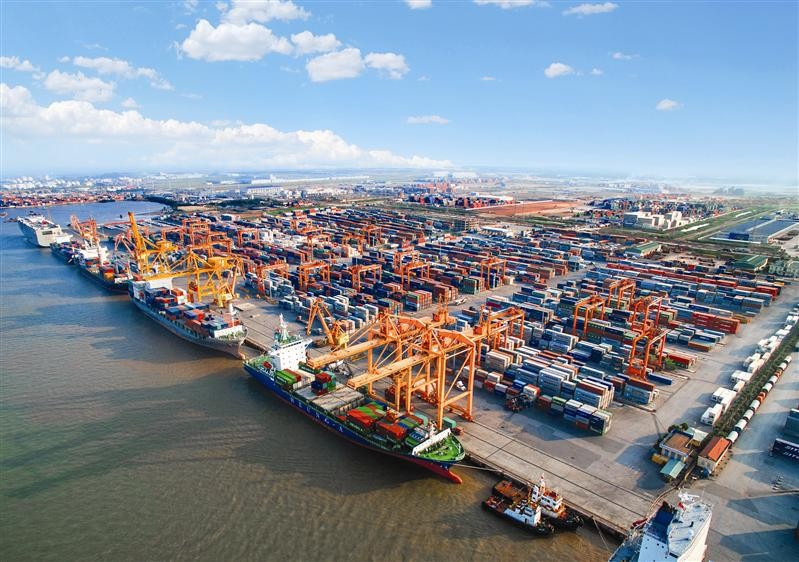
Firm policy framework crucial for creative economy: Experts
Latest
 |
| Loading goods for export at Hai Phong port. (Photo: Haiphongport) |
The creative economy, though a new norm as it is, has brought to Vietnam billions of USD each year. According to a CIEM research, Vietnam has initially made efforts to access creative industries and services.
The country has built a policy framework for creative economic development, with a number of policies and regulations completed and meeting the requirements for creative economic development.
For example, Vietnam's regulations on intellectual property protection have been completed in accordance with international commitments and international practices, motivating creators to promote their creativity.
A report announced by the UN Trade and Development (UNTAD) in 2022 showed that the global market size for creative goods increased by an average of 2.28% per year between 2011 and 2020 and up to 16.56% in 2021.
Total global exports of creative services rose by an average of 8.14% per year in the 2011-2020 period. It can be seen that global export of creative goods has grown significantly because many countries are implementing measures to support cultural and creative industries.
In Vietnam, MISA, a financial and accounting software supplier for small and medium enterprises, has been an example of a successful creative business. The firm has designed and exported MISA CukCuk software to the world. After five years in the international market, this software is currently available in more than 20 countries around the world and has achieved sales of nearly 2 million USD. It targets a revenue of 1 million USD in 2024 and 50 million USD in the next five years.
Nguyen Anh Duong, head of the CIEM’s General Research Department, said that Vietnam has great advantages in promoting the creative economy thanks to a young, tech-savvy population, rich cultural heritage, rapid digitalisation, and increasing international economic integration.Economist Vo Tri Thanh held that a widely connected and strongly supported culturally-based creative industry will give Vietnam a great commercial capacity and global competitiveness.
Vietnam has a large domestic market, along with an expanding and very promising regional market, he commented. Meanwhile, Dr. Nguyen Hoang Hanh, Director of the centre for research, training, support and consulting under the National Office of Intellectual Property, said that intellectual property is the energy and even the backbone and the lifeblood for the creative economy.
She stressed the need for Vietnam to promote the potential of intellectual property as an effective tool for creative economic development.
However, Dr. Minh held that Vietnam should clearly define difficulties and limitations for creative economic development. She cited a CIEM survey in some localities which showed that the understanding of creative economy remained different in localities, while there is a lack of policy framework and legal regulations for many creative activities.
Pointing to a lack of updated and detail data related to creative economy, Duong held that in the immediate future, it is necessary to improve policy and legal institutions to create a suitable legal framework for the development of the creative economy.
This includes the creative and cultural industries as well as the creative cultural market, while integrating creative economic development in economic development plans and goods and service export policies.
It is necessary to invest more in infrastructure and digital technology, increasing education and skills training, and promoting domestic and international markets for Vietnamese creative products and enhancing sustainability and social responsibility in creative-related businesses, he said.
Dr. Minh stressed the need to renovate mindset, methods, and models to create new spaces for economic growth.

























